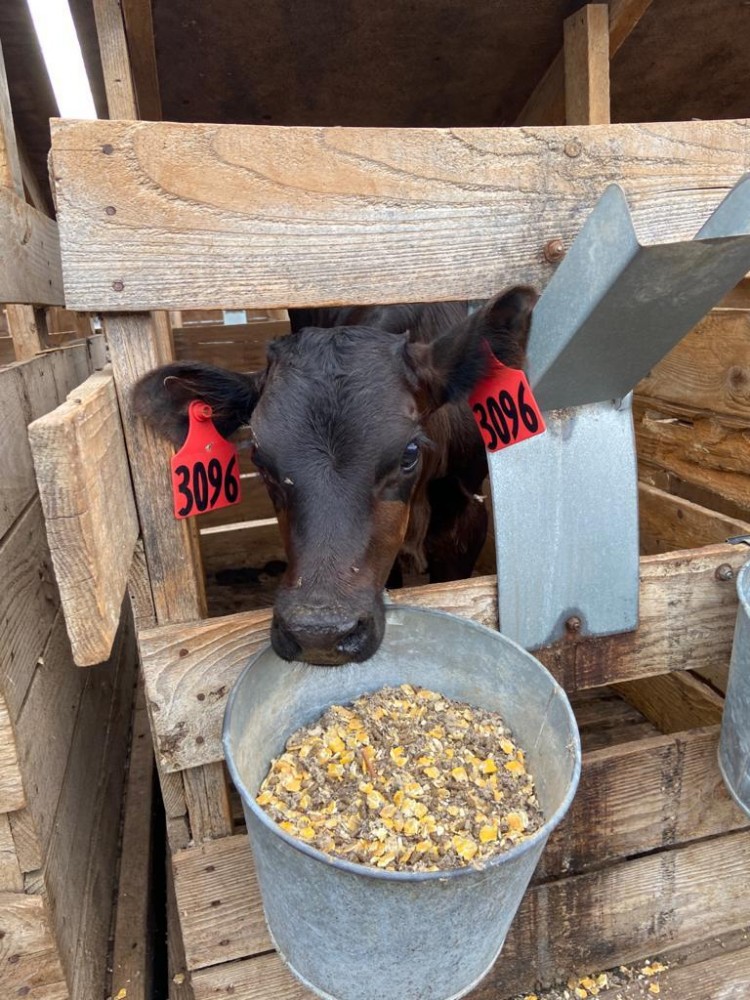Mating Decisions for Beef x Dairy Crosses Just as Important as Conventional
Mating Decisions for Beef x Dairy Crosses Just as Important as Conventional by Dairy Nolan - Dairy Herd Management
To access the original article click here
The use of beef semen has become increasingly popular over the past five years. In 2017, 2.4 million units of beef semen were sold to dairy producers in the U.S. That number is over 5 million units today. Breeding dairy cattle using beef semen started as a way to increase the profit for dairy steers by producing a black-hided calf. However, over the past few years, we have learned that mating decisions for beef x dairy crosses may be just as important as conventional mating decisions. Below are considerations for sire and dam selections when adopting a beef x dairy crossbreeding program.
Sire Selections
Bull selections should meet the following needs of the dairy operation and the feedlot operation in which the offspring will enter.
Conception Rate - A 1% decrease in the conception rate can cost a dairy farm around $25 per cow. Consider choosing bulls with acceptable conception rates that meet the other breeding goals.
Calving Ease - Selections for calving ease can be a little more forgiving than conventional selections. Producers can select from the top 25% of calving ease beef sires because dairy cows commonly give birth to larger farmed dairy calves.
Frame Size - The common issue that feedlots have with dairy steers and even early beef x dairy crosses is their large frame size. A larger frame size takes more time to fill out. Selecting for a smaller frame (bulls with frame scores under 5) can lead to smaller animals that are more feed efficient.
Ribeye Area - Though well-finished dairy steers tend to have excellent marbling, they have a smaller, more elongated ribeye than their beef counterparts. Selecting bulls with higher ribeye expected progeny differences will result in a more desired carcass.
Dam Selections
When making the transition to using beef genetics, we do not want to compromise the genetic progress of the dairy operation. Many farms have had success using genomic testing to rank animals eligible for beef semen. However, genomic testing may not be feasible for all operations. Other considerations may include historic milk yield, the number of breeding services, and past health events. Breeding considerations should be specific to meet the individual goals of the farm.

Upcoming Events
Crops, Cows & Critters - Southwest New York Dairy, Livestock & Field Crops Newsletter Sponsorship
December 19, 2025
Our two forms of publications feature research-based and timely information from our four specialists, listed to the right, along with local event notifications and Cornell University outreach. This information is provided to participants who range from dairy, livestock, and field crops producers to agricultural suppliers and consultants.
Weekly Email Update: Shared with 625+ households who have signed up with our program.
Monthly Paper Mailer: To reach our stakeholders and farmers who lack internet access, we send out a monthly mailer where your company's logo and contact information would be featured with a mailing list of 330+ households.
If you sponsor our weekly and monthly publications you reach approximately 955 households.
Visit our website to view our newsletters!
2025 Cornell Food Beverage & Animal Feed Manufacturer Survey
December 19, 2025
Industry and Educational Advocates for New York State's Food, Beverage, and Animal Feed Manufacturing industries:
As you know, NYS has a diverse food and beverage manufacturing industry, in both the types of industries that exist and the wide distribution of firms by scale. Many manufacturing firms have strong backward linkages to agricultural production sectors in the state that support both farm-level and downstream food industry firms and consumers. In collaboration with the New York State Department of Agriculture and Markets, a team from Cornell University's Charles H. Dyson School of Applied Economics and Management has recently rolled out the 2025 New York State Food, Beverage, and Animal Feed Manufacturer Survey. The industry will benefit from an updated assessment of the industry that informs private and public investments and opportunities to support firm growth and improved profitability.
Cornell Organic Field Crops & Dairy Conference
March 6, 2026
Waterloo, NY
Farmers, researchers, educators, and agricultural service providers from across the Northeast are invited to the 2026 Cornell Organic Field Crops & Dairy Conference, held Friday, March 6, 2026, from 8:00 a.m. to 4:30 p.m. at the Lux Hotel & Conference Center in Waterloo, N.Y.
Co-hosted by New York Soil Health and Cornell CALS, the annual conference brings together leaders in organic grain, dairy, and livestock systems to share practical tools, new research, and farmer-tested strategies to support resilient and profitable organic production.
Announcements
No announcements at this time.





